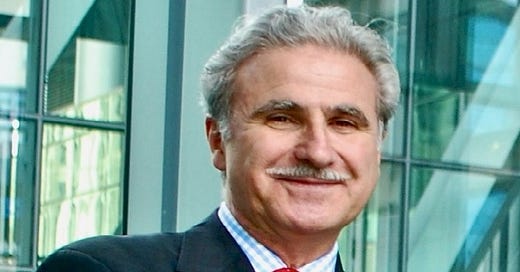Why Would You Need Leadership Coaching?
Seek Clarity. Design Your Breakthrough. Become a Resonant Leader
I am a curious and inquisitive person. I like to understand how visions are realized, how extraordinary things are made and what generates Breakthrough results for individuals and brands.
I adhere to the principle that affirms that creating unique value that addresses each client's needs, enables Breakthrough results and earns the friendship of those we serve is the art of making selling obsolete.
As I collaborate closely with visionary leaders and legacies, I marvel at the consistency and strength of these concepts:
Vision is essential: you first win in your mind before you win in the world.
Becoming a Peak Performer involves sharpening your physical and emotional skills to become a flexible, adaptable, versatile and creative Thinker that can deliver Breakthrough results.
You lead from the front: the essence of Leadership is to infuse positive energy in everything you do, recruiting collaborators to realize your Vision, keeping them safe and celebrating accomplishments together.
For the past four decades, I've grown my Leadership Performance Strategies consultancy thanks to referrals from clients, friends and professional networks.
Referrals constitute approximately 90% of my client engagement opportunities. The remaining 10% is generated by speaking engagements, workshops and corporate events.
A referral is always a welcome event, as it might arrive cushioned by a client's satisfaction and a promise of positive transformation. It's also a great responsibility, so I ask detailed questions during an initial meeting.
Understanding the current situation and the executive's aspirations and perceived limitations is key. The quality of my questions can determine the precision and effectivenes of my approach, so I continuously try to refine them so they invite storytelling in a safe environment.
Over the years, I've worked with senior leaders for whom Leadership Coaching was a pathway to reach new levels of effectiveness but, most importantly, new levels of personal resonance and expression of ideas that can serve the world at large.
A C-level banker wanted to understand how to approach retirement and become an American football coach.
A successful events producer shifted focus to work full-time in a Meditation non-profit and teach children how to manage their emotions.
A business owner in the food industry wanted to understand if he could make a bigger impact by becoming a politician or by embracing philanthropy in creative ways. He remains an entrepreneur who spins out businesses that transform cities and has reached international recognition for his sustained efforts on behalf of underserved populations.
Numerous executives in transition discovered that instead of "working for the job" they could align achievement, fulfillment and significance by "thriving through the job," intentionally answering the question "What positive impact am I making by taking this decision?"
A legendary television producer found out how to invest the skills that made him extraordinarily successful into building a "new life portfolio" that included working with his sons, starting a foundation and funding innovative technologies to improve education.
A university professor developed the confidence and a plan to go beyond the confines of academia to resonate publicly and train a new generation of leaders in several cities.
Without asking insightful questions that could allow me to access their "secret motives," we would not have co-designed the appropriate blueprints for them to achieve Breakthrough.
Why Would You Need Coaching?
Fair question. We all tend to abide by the popular rule that "if it ain't broken, don't fix it."
However, sometimes we can't figure out that something is broken (it's not evident) and perhaps the situation is bending to the point of breaking but not yet broken.
That's why it's important to have a reliable Checklist (like F1 drivers and airplane pilots) that allows you to regularly monitor your environment as a leader.
These signs often indicate underlying challenges in leadership that coaching can help address by providing clarity, emotional resilience, and actionable strategies:
1. Chronic Stress or Burnout: Constant feelings of overwhelm, exhaustion, or disengagement from work, leading to reduced effectiveness and personal satisfaction.
2. Frustration with Team or Results: Persistent feelings of frustration due to unmet expectations, conflict with team members, or difficulty in achieving desired outcomes.
3. Lack of Confidence in Decision-Making: Doubt and hesitation when making important decisions, often leading to procrastination or overly conservative choices.
4. Emotional Detachment or Isolation: Becoming emotionally distant or disconnected from the team, peers, or stakeholders, leading to poor communication and collaboration.
5. Frequent Emotional Outbursts: Displaying frequent anger, irritability, or mood swings, which negatively affect relationships and team morale.
6. Struggling with Change or Uncertainty: Difficulty adapting to change, whether due to market shifts, organizational restructuring, or personal transitions, leading to anxiety or resistance.
7. Reduced Passion or Motivation: A noticeable decline in enthusiasm for the business or personal vision, resulting in complacency or a lack of drive to innovate and push forward.
If you recognize one ore more of these signs, it might be useful to answer the questions below.
Your Workout
Here’s a list of 25 weighted, open-ended questions designed to help you determine if you might benefit from Leadership Coaching.
You can consider each of them and make notes and you can also rank your answers from (1) Poor to (5) Excellent and identify areas of Strength and Weakness.
These questions encourage deep reflection and provide insight into whether Leadership Coaching would be beneficial to you.
Vision
1. How clearly do you see where your organization or team should be in 5 years, and how well can you articulate that vision to others?
2. How do you evaluate the alignment between your personal goals and your organization’s long-term objectives?
3. In what ways do you adapt your vision as new information, market shifts, or challenges arise?
4. How do you create strategies that ensure your vision is understood and embraced across diverse teams?
Personal Performance
5. What are the key metrics you use to measure your own effectiveness and impact as a leader, and how consistently do you meet them?
6. When faced with conflicting priorities, how do you ensure you're focusing on the most impactful actions?
7. How do you manage your time and energy across competing demands to maintain peak performance?
8. What processes do you follow to regularly evaluate your leadership growth?
Resilience
9. How do you typically respond to setbacks or failures in your leadership role, and what do you learn from them?
10. How do you maintain motivation and drive through long periods of uncertainty or difficulty?
11. When was the last time you faced a crisis at work, and how did your leadership help navigate through it?
12. In what ways do you prepare yourself and your team for inevitable changes or disruptions?
Emotional Intelligence
13. How do you manage and regulate your emotions, particularly under high pressure?
14. In what ways do you recognize and respond to the emotional needs of your team?
15. How do you handle feedback, especially critical feedback, from peers or employees?
16. How effectively do you build trust and empathy within your team or organization?
Creative Thinking
17. How often do you push yourself to explore new perspectives or challenge the status quo?
18. When faced with a complex problem, what methods do you use to generate innovative solutions?
19. How do you create an environment where your team feels empowered to bring forward creative ideas and solutions?
20. In what ways have you leveraged creativity to drive change or solve difficult challenges in your organization?
Cultural Awareness
21. How do you ensure that you are staying aware of cultural trends, both within and outside your organization, that may impact your leadership?
22. What steps do you take to incorporate diverse perspectives into your decision-making processes?
23. How well do you understand the different cultural dynamics within your team, and how do you adapt your leadership approach accordingly?
24. How do you handle situations where cultural values or expectations differ from your own, particularly in international or cross-functional contexts?
Integration
25. How effectively do you blend vision, resilience, emotional intelligence, and creative thinking into your leadership style to lead your team through complex challenges?
What To Do Next
If this initial exploration of your Leadership skills motivates you to find out how a personalized Leadership Coaching approach can benefit you, learn more about my Leadership Performance Strategy process
You can contact me directly to have a conversation at csalum@saluminternational.com
You can find out who has engaged my services in the Clients and the Testimonials web pages
[First published in my LinkedIn newsletter “The Glass is Full and a Half” on September 17, 2024]
More Suggestions:




